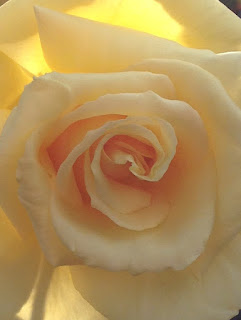I started this reflection in December, but am just now getting back to it. It concludes with Stephen Mitchell's translation of Psalm 24 which I find profound. Someone recently commented that she wondered if regular reading of the psalms “achieved” anything. If we make the reading itself the sole goal, then perhaps no. However, surely the deeper purpose of the the psalms is to bring us new understanding and a renewed sense of how God is calling us to be. Worrying about achievement, just for the sake of achievement, is bringing us much imbalance and even destruction. Let us learn to live, alive with mercy and care, for all.
The reading for December 20 in The Rule of Benedict by Sister Joan Chittister explores the role of those who are in positions of monastic authority. The reading has stayed with me because I think this reflection can be translated to all the communities in our lives, whether they be a monastery, a skilled nursing community, a family, a school, a house of faith, or yes, even our government.
There is no such thing as a private life in globalized world. For a monastery, there never was. The monastery is that model of a place where the doors are always open, the environment is always gentle, the rhythm is always ordered, and God is always the center of life. A monastery is to be a light to remind all of how beautiful the world would be if we shaped our own lives out of the same values. ...What happens in a Benedictine monastery should touch the spiritual life of an entire region. For this reason, whatever might erode monastic life - a breakdown of lifestyle, a contrived election, a loss of authenticity - is definitely everybody else’s business.
Yes, these are ideals, and we humans should be guided by ideals. We will fall short at times, but if we hold to the ideal that we are always called into relationship with God, the essence of our lives, and the lives of those who are trying to be in relationship with us will not be torn, but rather strengthened. This is how I interpret the Benedictine vow of conversatio morum, “the challenge of to continual, on-going conversation, being open to the new, saying yes to following Christ’s call to discipleship wherever that may lead.” I am certainly not implying that one must be a Christian to have a position of leadership in our communities and our government. However, the hope is that the call to leadership is authentic, not contrived, and that those called will remember that the conversation must always be about the greater good, not just private gain. In his Rule, Benedict wrote quite a bit about leadership, viewing it as the lynch pin of a healthy community. This may be a lesson we all need to relearn, whether we ourselves are in a leadership position, or voting for someone to courageously, yet humbly, into that role.
Psalm 24
The Book of Psalms
Stephen Mitchell
The earth belongs to the Lord,
And everything is his.
For he founded it in empty space
And breathed his own life-breath into it,
Filling it with manifold creatures,
Each one precious in his sight.
Who is fit to hold power
And worthy to act in God’s place?
Those with a passion for the truth,
Who are horrified by injustice,
Who act with mercy to the poor
And take up the cause of the helpless,
Who have let go of selfish concerns
And see the whole earth as sacred,
Refusing to exploit her creatures
Or to foul her waters and lands.
Their strength is in their compassion:
God’s light shines through their hearts.
Their children’s children will bless them,
And the work of their hands will endure.
The Rule of St. Benedict, Joan Chittister, O.S.B., Crossroad Publishing Company, 1992, p. 164
Seeking God, The Way of St. Benedict, Esther de Waal, Liturgical Press, 2001, p. 13
A Book of Psalms, Stephen Mitchell, Harper Collins, 1993, page 14.
















